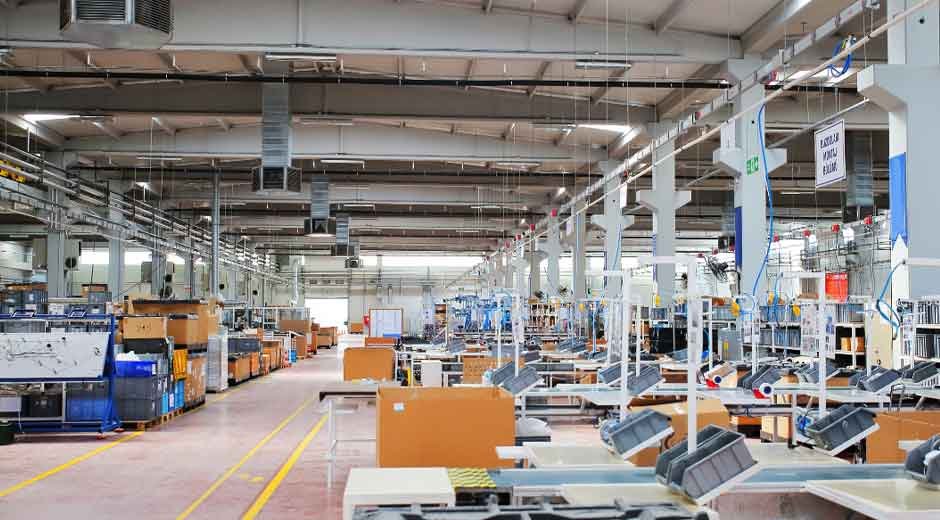Skip to the good bit
ToggleRunning a small business feels overwhelming when you need expensive equipment to get the job done. Maybe you’re managing a growing warehouse, handling construction projects, or dealing with heavy materials that require serious machinery. The problem is simple: you need big machines, but you don’t have a big budget to match.
This challenge hits businesses in every industry. A small construction company needs excavators and loaders. A growing e-commerce business requires forklifts and conveyor systems. A manufacturing startup needs specialized tools and machinery. The equipment costs can easily reach hundreds of thousands of dollars, which puts many business owners in a tough spot.
Why Equipment Costs Get Out of Hand So Quickly
Heavy machinery comes with price tags that make most small business owners cringe. A new forklift can cost anywhere from $20,000 to $100,000 depending on what you need. Construction equipment runs even higher. Add in maintenance, insurance, storage, and operator training, and the numbers become really scary.
Many business owners make the mistake of thinking they need to own everything. This old-school mindset assumes that buying equipment is always the best long-term investment. But this approach can drain cash flow and limit growth opportunities. Small businesses need to think differently about how they access the tools they need.
The Smart Alternative That Most Businesses Miss
Here’s where many small businesses get it wrong: they focus on ownership instead of access. The goal isn’t to own the equipment; it’s to have reliable access when you need it. This shift in thinking opens up several options that can save serious money.
Rental and hire services have become much more flexible and cost-effective over the years. For example, if you need equipment for warehouse operations in Melbourne, services offering forklift hire Melbourne can provide exactly what you need without the massive upfront investment. This approach lets businesses access professional-grade equipment while keeping cash flow healthy.
The rental model works particularly well for businesses that have seasonal demands or project-based work. Instead of paying for equipment that sits idle half the year, you only pay for what you actually use. This can reduce equipment costs by 60-70% compared to purchasing new machinery.
Finding Equipment That Fits Your Actual Needs
Small businesses often overbuy when it comes to equipment. They purchase machines that can handle their biggest possible job rather than their typical workload. This leads to spending way more money than necessary on capabilities they rarely use.
Start by analyzing your actual requirements. How often do you need the equipment? What’s the maximum weight or capacity you typically handle? How much space do you have for operation and storage? These questions help identify the right size and type of equipment without going overboard.
Consider multi-purpose machines that can handle several different tasks. A telehandler might replace both a forklift and a small crane for some applications. A compact loader could handle material moving, digging, and cleanup work. These versatile machines cost more than single-purpose tools but less than buying multiple specialized pieces.
Timing Your Equipment Decisions
The timing of equipment purchases or rentals can dramatically impact costs. End-of-year sales, off-season pricing, and manufacturer incentives can reduce costs significantly. Construction equipment often costs less during winter months in many regions. Warehouse equipment might be cheaper during slower retail seasons.
Plan equipment needs as far in advance as possible. Last-minute rentals cost more and offer fewer options. Emergency purchases are always the most expensive way to acquire equipment. Building relationships with equipment suppliers can also lead to better deals and priority access during busy periods.
Making Partnerships Work for Equipment Access
Some of the smartest small businesses form partnerships or consortiums to share equipment costs. This works particularly well in industries where businesses have complementary schedules or seasonal patterns. Three construction companies might jointly own an excavator that each uses during different parts of the year.
Equipment sharing requires clear agreements about maintenance, scheduling, and responsibility. But when it works, it gives small businesses access to equipment they couldn’t afford individually. This approach has become more common as businesses realize the benefits of collaborative resource management.
Building Your Equipment Strategy
Creating a long-term equipment strategy helps small businesses make smarter decisions. This strategy should consider growth projections, cash flow patterns, and operational requirements. It should also include backup plans for equipment failures and peak demand periods.
Document your equipment usage patterns over time. This data helps determine when purchasing makes sense versus continued rental. Generally, equipment used more than 60-70% of available time becomes a candidate for purchase. Equipment used less frequently is usually better handled through rental arrangements.
Regular strategy reviews ensure your approach stays aligned with business changes. What worked when you had five employees might not work with fifty. Growing businesses need flexible equipment access that can scale up or down as needed.
Making Smart Decisions That Actually Work
Getting industrial equipment on a tight budget requires thinking beyond traditional ownership models. The businesses that succeed focus on access and flexibility rather than ownership and control. They use rental services strategically, time their decisions well, and sometimes partner with others to share costs.
The key is matching your equipment access method to your actual business needs and financial situation. Sometimes renting makes perfect sense. Other times, buying used equipment or forming partnerships works better. The smartest small business owners use a combination of approaches to get the machinery they need without breaking their budgets.







